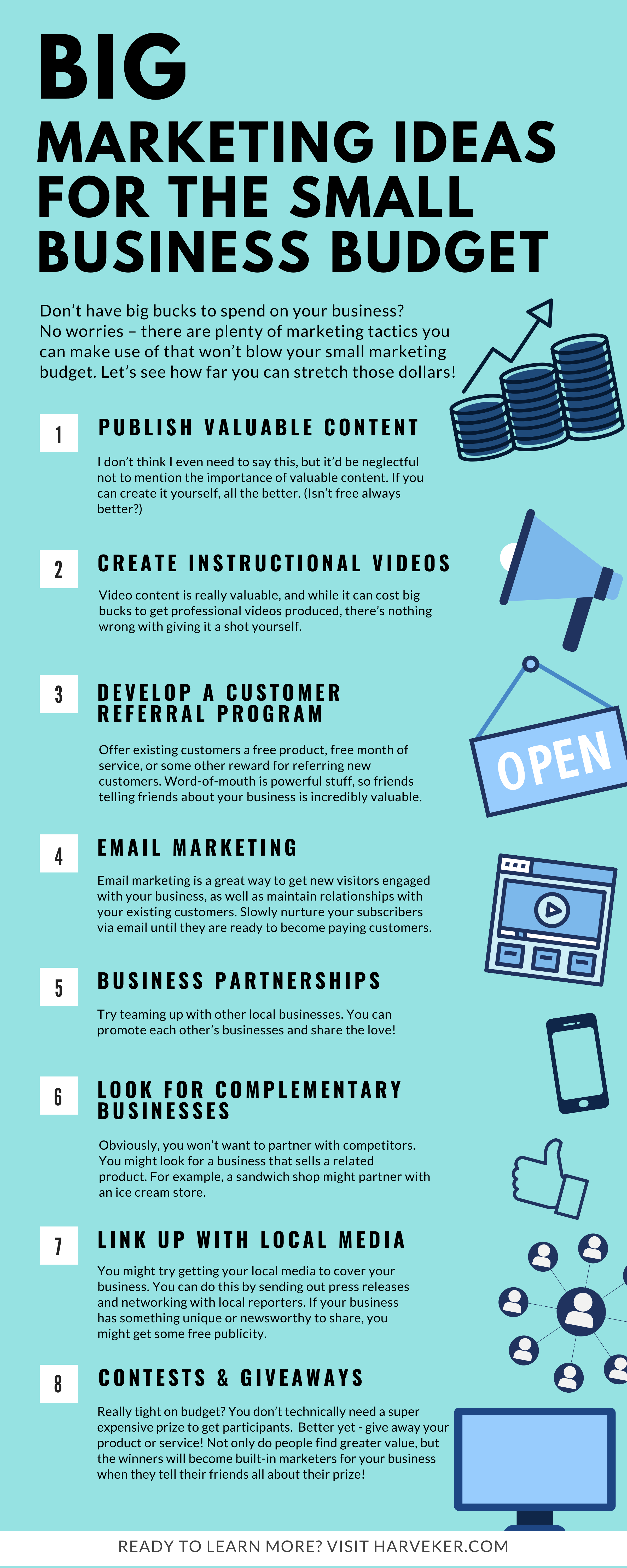

Sub Heading: Define Your Target Audience
Understanding your target audience is the cornerstone of effective marketing for small businesses. Take the time to research and analyze your ideal customers— their demographics, preferences, and pain points. This knowledge will help you tailor your marketing efforts to resonate with your target audience and attract qualified leads. Visit top marketing tips for small businesses for more insights.
Sub Heading: Establish a Strong Online Presence
In today’s digital age, having a strong online presence is essential for small businesses to reach their target audience. Create a professional website that showcases your products or services, provides valuable content, and makes it easy for visitors to contact you. Additionally, utilize social media platforms to engage with your audience, share updates and promotions, and build relationships with potential customers.
Sub Heading: Leverage Content Marketing
Content marketing is a powerful strategy for small businesses to attract, engage, and retain customers. Create high-quality content that provides value to your target audience—such as blog posts, videos, infographics, and ebooks. By sharing valuable content that addresses your audience’s needs and interests, you can position your business as an authority in your industry and build trust with your audience over time.
Sub Heading: Utilize Search Engine Optimization (SEO)
Optimizing your website for search engines is crucial for improving your visibility and driving organic traffic to your small business. Conduct keyword research to identify relevant search terms that your target audience is using, and incorporate them into your website’s content, meta tags, and headings. Additionally, focus on building quality backlinks from reputable websites to improve your search engine rankings and attract more visitors to your site.
Sub Heading: Engage in Social Media Marketing
Social media marketing allows small businesses to connect with their audience, build brand awareness, and drive traffic to their website. Choose the social media platforms that are most relevant to your target audience, and create a consistent posting schedule to share valuable content, interact with your followers, and promote your products or services. Utilize paid advertising options on social media platforms to reach a larger audience and generate leads for your business.
Sub Heading: Implement Email Marketing Campaigns
Email marketing remains one of the most effective channels for small businesses to nurture leads, promote products or services, and drive conversions. Build an email list of subscribers who have opted in to receive communications from your business, and segment your list based on demographics, interests, and behaviors. Create personalized email campaigns that provide value to your subscribers and encourage them to take action, such as making a purchase or signing up for a webinar.
Sub Heading: Collaborate with Influencers and Partners
Partnering with influencers and other businesses in your industry can help you reach a wider audience and build credibility for your small business. Identify influencers or industry experts who have a relevant following and engage with them to collaborate on content, promotions, or events. Additionally, explore opportunities to partner with complementary businesses to cross-promote each other’s products or services and reach new customers.
Sub Heading: Collect and Leverage Customer Reviews
Positive reviews and testimonials from satisfied customers can significantly impact your small business’s reputation and credibility. Encourage your customers to leave reviews on platforms such as Google My Business, Yelp, and Facebook, and showcase them on your website and marketing materials. Respond to reviews promptly and professionally, addressing any concerns or issues raised by customers to demonstrate your commitment to customer satisfaction.
Sub Heading: Monitor and Analyze Your Marketing Efforts
Tracking and analyzing the performance of your marketing campaigns is essential for optimizing your strategies and maximizing your return on investment (ROI). Use analytics tools such as Google Analytics, social media insights, and email marketing analytics to monitor key metrics such as website traffic, engagement, conversions, and revenue. Use this data to identify trends, assess the effectiveness of your marketing efforts, and make informed decisions about where to allocate your resources in the future.
Sub Heading: Stay Flexible and Adapt to Changes
The marketing landscape is constantly evolving, so it’s important for small businesses to stay agile and adaptable. Keep abreast of industry trends, technological advancements, and changes in consumer behavior, and be willing to experiment with new strategies and tactics. By staying flexible and open to change, you can position your small business for long-term success and continue to grow and thrive in a competitive market.
